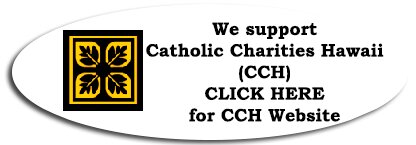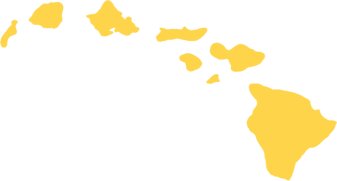Best Antitrust Litigation Lawyers in Hawaii
Share your needs with us, get contacted by law firms.
Free. Takes 2 min.
Or refine your search by selecting a city:
List of the best lawyers in Hawaii, United States
About Antitrust Litigation Law in Hawaii, United States
Antitrust litigation refers to legal cases that arise when businesses or individuals are accused of violating antitrust laws, which are designed to promote fair competition and prevent monopolies or unfair business practices. In Hawaii, antitrust litigation can involve both state and federal laws, such as the Sherman Antitrust Act, Clayton Act, and Hawaii’s own antitrust statutes. These cases may address issues such as price-fixing, market allocation, bid-rigging, monopolization, or unlawful mergers. Hawaii’s unique market conditions, including its geographic isolation and reliance on limited supplies, can play a distinctive role in antitrust matters within the state.
Why You May Need a Lawyer
Antitrust litigation is complex and often involves high stakes for both businesses and consumers. You may need to consult an attorney if you find yourself in one of the following situations:
- You suspect a competitor or business partner is engaging in unfair business practices, such as price-fixing or collusion
- Your business is being investigated by the Hawaii Attorney General or federal authorities for potential antitrust violations
- You have been served with a lawsuit alleging antitrust violations
- Your business is considering a merger, acquisition, or partnership that could raise antitrust concerns
- You are affected by anti-competitive practices, such as exclusion from markets or unfair contractual restrictions
- You are a consumer or business harmed by monopolistic or collusive behavior and want to seek damages
- You need guidance complying with both state and federal antitrust regulations
A lawyer experienced in Hawaii antitrust litigation can evaluate your case, help gather evidence, represent you in court, negotiate settlements, and ensure your business practices comply with the law.
Local Laws Overview
Antitrust litigation in Hawaii is governed by a combination of federal and state laws. The main federal statutes are the Sherman Antitrust Act, the Clayton Act, and the Federal Trade Commission Act. These laws address anti-competitive practices on a national scale and are enforced by the Department of Justice and the Federal Trade Commission.
Hawaii also has its own antitrust laws, notably Hawaii Revised Statutes Section 480, known as the "Hawaii Antitrust Law." This law prohibits unfair methods of competition, monopolies, and restraints of trade. The Hawaii Attorney General has the authority to investigate and file lawsuits on behalf of the state, while individuals and businesses can also file private lawsuits for damages or injunctive relief.
Some key aspects of Hawaii’s antitrust laws include:
- State-specific definitions of unfair competition and monopolistic practices
- The ability for individuals or businesses to recover treble damages (three times the actual damages) for proven violations
- Procedures for class actions in antitrust cases
- Prohibitions on business practices that substantially lessen competition or tend to create a monopoly in any line of trade or commerce
Because Hawaii’s market is smaller and sometimes insular, local enforcement agencies are particularly attentive to practices that could disproportionately affect consumer prices and access to goods and services on the islands.
Frequently Asked Questions
What is considered an antitrust violation in Hawaii?
An antitrust violation in Hawaii includes activities such as price-fixing, bid-rigging, market allocation, exclusive dealing contracts, or any agreement or conduct that unreasonably restrains trade or creates a monopoly.
Who can file an antitrust lawsuit in Hawaii?
Lawsuits can be filed by individuals, consumer groups, businesses, or the Hawaii Attorney General. Private parties may seek damages if they have suffered due to antitrust violations.
What agencies investigate antitrust complaints in Hawaii?
The Hawaii Department of the Attorney General and federal agencies like the Department of Justice and the Federal Trade Commission are the main bodies investigating antitrust matters.
Are there special rules for antitrust cases in Hawaii compared to other states?
Yes, while Hawaii generally follows federal antitrust precedent, its state laws provide additional protections and remedies, including the ability for plaintiffs to recover treble damages.
What types of damages can I recover in an antitrust case?
Victims of antitrust violations in Hawaii can recover actual damages, treble (triple) damages, attorney’s fees, and sometimes injunctive relief to stop further illegal behavior.
Can small businesses be defendants in antitrust cases?
Yes, antitrust laws apply to all businesses regardless of size. Small businesses may be sued or investigated if they engage in anti-competitive practices.
Is it illegal for companies to collaborate on pricing in Hawaii?
Yes, price-fixing is a major violation of both state and federal antitrust laws and is illegal in Hawaii.
What is the statute of limitations for antitrust claims in Hawaii?
Generally, antitrust actions in Hawaii must be filed within four years of the alleged violation, but certain circumstances can affect this timeline.
What should I do if my business is accused of an antitrust violation?
Contact an experienced attorney immediately. Do not destroy any records or communicate about the matter until you have legal counsel to guide you.
How are antitrust laws enforced in Hawaii?
Enforcement can come from the Hawaii Attorney General, federal authorities, or private lawsuits. Settlements, penalties, and court orders can result from successful enforcement actions.
Additional Resources
If you need more information or assistance with antitrust matters in Hawaii, the following resources can be helpful:
- Hawaii Department of the Attorney General, Antitrust Division
- Office of Consumer Protection, State of Hawaii
- United States Department of Justice, Antitrust Division
- Federal Trade Commission
- Hawaii State Bar Association (for attorney referrals)
- Legal Aid Society of Hawaii (for qualifying individuals and businesses)
- Law libraries at the University of Hawaii and local courthouses
Next Steps
If you believe you are involved in or affected by an antitrust matter in Hawaii, take the following steps:
- Document all relevant communications and transactions related to your concern
- Avoid discussing the matter with opposing parties until you have legal counsel
- Consult an experienced Hawaii antitrust attorney to assess your case and discuss your legal options
- If you are a business, ensure your operations and contracts comply with antitrust laws by seeking regular legal review
- Contact the appropriate governmental body if you need to file a complaint or seek investigation
- Stay informed about deadlines, such as statutes of limitations, to preserve your rights
Because antitrust litigation is complex and can involve significant financial and reputational risk, obtaining knowledgeable legal representation is essential to protect your interests.
Lawzana helps you find the best lawyers and law firms in Hawaii through a curated and pre-screened list of qualified legal professionals. Our platform offers rankings and detailed profiles of attorneys and law firms, allowing you to compare based on practice areas, including Antitrust Litigation, experience, and client feedback.
Each profile includes a description of the firm's areas of practice, client reviews, team members and partners, year of establishment, spoken languages, office locations, contact information, social media presence, and any published articles or resources. Most firms on our platform speak English and are experienced in both local and international legal matters.
Get a quote from top-rated law firms in Hawaii, United States — quickly, securely, and without unnecessary hassle.
Disclaimer:
The information provided on this page is for general informational purposes only and does not constitute legal advice. While we strive to ensure the accuracy and relevance of the content, legal information may change over time, and interpretations of the law can vary. You should always consult with a qualified legal professional for advice specific to your situation.
We disclaim all liability for actions taken or not taken based on the content of this page. If you believe any information is incorrect or outdated, please contact us, and we will review and update it where appropriate.
Browse antitrust litigation law firms by city in Hawaii
Refine your search by selecting a city.












